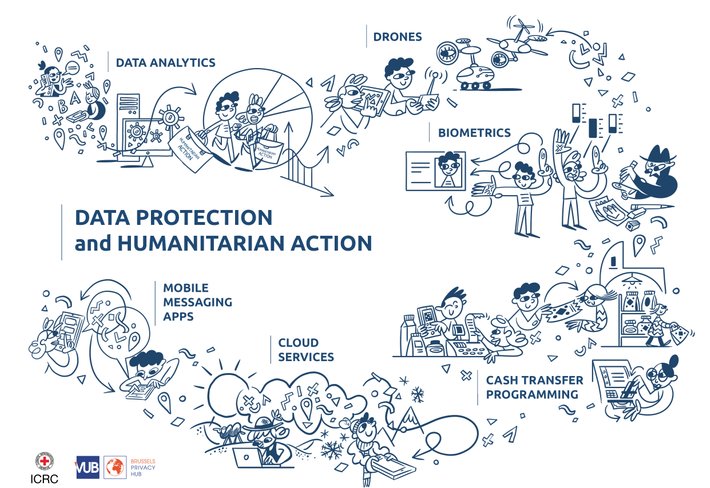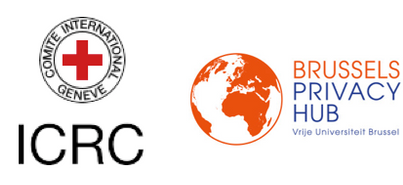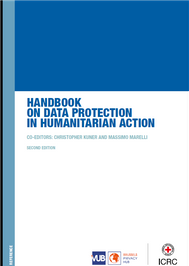Brussels Privacy Hub has moved to a new website as of 18 May 2022. The new website is available at www.brusselsprivacyhub.com. This version of the website will be stored for archiving purposes. Please see the new website for the latest updates.
Handbook on Data Protection in Humanitarian Action
Protecting individuals’ Personal Data is an integral part of protecting their life and dignity. This is why Personal Data protection is of fundamental importance for Humanitarian Organizations.
Recent developments in new technologies have meant that the Processing of ever-increasing quantities of Personal Data in an interconnected world has become easier and faster. This has also given rise to concerns about the possible intrusion into the private sphere of individuals and to regulatory efforts worldwide to respond to these concerns.
The Handbook on Data Protection in Humanitarian Action has been published as part of the Data Protection in Humanitarian Action project, organized jointly by the Brussels Privacy Hub, an academic research centre of the Vrije Universiteit Brussel (VUB) in Brussels, Belgium, and the International Committee of the Red Cross (ICRC) Data Protection Office in Geneva, Switzerland.
The content of the first edition of the Handbook was developed in a series of workshops held in Brussels and Geneva in 2015–2016, with representatives from Humanitarian Organizations (including humanitarian practitioners), data protection authorities, academics, non-governmental organizations, researchers and other experts. They came together to address questions of common concern in the application of data protection in Humanitarian Action, particularly with respect to new technologies.
On 3 June 2020, the Hub together with the International Committee of the Red Cross (ICRC) published the second edition of their Handbook on Data Protection in Humanitarian Action. The co-editors of the second edition are Christopher Kuner, co-director of the Hub, and Massimo Marelli of ICRC.
The second edition builds on the first edition published in 2017, and includes additional chapters on data protection and the following technologies: digital identity; social media; blockchain; connectivity as aid; and artificial intelligence and machine learning.
The Handbook aims to further the discussion launched by the International Conference of Data Protection and Privacy Commissioners’ (ICDPPC’s) Resolution on Privacy and International Humanitarian Action adopted in Amsterdam in 2015. It is not intended to replace compliance with applicable legal norms, or with data protection rules, policies and procedures that a particular organization may have adopted. Rather, the Handbook seeks to raise awareness and assist Humanitarian Organizations in ensuring that they comply with Personal Data protection standards when carrying out humanitarian activities, by providing specific guidance on the interpretation of data protection principles for Humanitarian Action, particularly when new technologies are employed.
On 3 June 2020, for the release of the second edition of the Data Protection Handbook for Humanitarian Action, the ICRC has convened a panel of experts to discuss how, in today's technological landscape, data protection is a more essential concern than ever. As the COVID-19 pandemic continues to impact societies worldwide, contact tracing apps are being developed in a bid to contain the spread of the virus. While arguably effective in this sense, such technologies also pose important questions regarding the relationship between public health, data protection and privacy.
Further information about the event available here.
EVENTS
We have presented the Handbook at the following events
- 4 September 2017, Gammarth, Tunisia: 10ème Conférence Francophone, Association Francophone des Autorités de Protection des Données Personnelles, session on Data Protection in International Humanitarian Action
- 27 September 2017, Hong Kong: 39th International Conference Data Protection and Privacy Commissioners, side event on Data Protection in Humanitarian Action
- 29 September 2017, Rennes: Digital data, migrants and refugees Workshop, Faculty of Law and Political Science of Rennes University
- 22-24 November 2017,Strasbourg: 35th Plenary of the Consultative Committee of the Convention for the Protection of Individuals with regard to Automatic Processing of Personal Data (T-PD)
- 22 November 2017, Brussels: Community Call on the General Data Protection Regulation (GDPR), Responsible Data Fourm
- 30 November - 1 December 2017, Brussels: Annual DG ECHO Partners’ Conference, Brussels
- 12 March 2018, Brussels: Conference on Data Protection in Humanitarian Action Presented by Minister of Development Cooperation, Digital Agenda Telecom and Postal Services, ICRC Delegation to the EU, NATO and the Kingdom of Belgium, Brussels Privacy Hub
- 23 October 2018, Brussels:ICDPPC 2018 Side Event: Data protection in humanitarian action 2nd working series
Useful Links
Connect with us
Brussels Privacy Hub
Law Science Technology & Society (LSTS)
Vrije Universiteit Brussel
Pleinlaan 2 • 1050 Brussels
Belgium
Stay informed
Keep up to date of our activities and developments. Sign up to our newsletter:
Copyright © Brussels Privacy Hub





